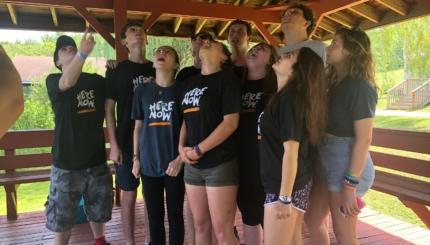As a Jewish professional, I am always looking for ways to connect Judaism to our lives. “Professional” Jews know that our students, congregants, and communities look to us as models for how to live a life filled with meaning and purpose.
One of the first lessons we teach Jewish children is that we are created b’tzelem Elohim – “in God’s image.” For some of us, being created in God’s image is a reminder to be God-like, showing as much kindness and compassion as we can. For others, being created in God’s image is a warning not to tattoo or pierce our bodies. For me, at this stage in my life b’tzelem Elohim is more literal: it means that God gave me my physical body to take care of, nurture, and cherish.
That’s why every day, I think about what I put into my body; every day, I find the time to move; and every day, I seek out things that make me happy. These acts not only keep me well physically, but also they also heighten my spiritual awareness. This has become as much my Jewish practice as the study of text or praying.
I am also just as much a role model for my students and staff by taking care of my body as I would be for my Jewish knowledge. I believe this very deeply: taking care of our physical selves honors a gift given to us by God, and is a very Jewish thing to do. And yet, the Jewish professional field is overwhelmed by unhealthy lifestyles, too little sleep, too little exercise, a state of imbalance and poor health. The irony in this is that research shows undeniably that people are more productive when they eat well, exercise, and get sleep.
The Jewish world closely mirrors the rest of society in the issue of weight and nutrition. And, sad but true – it’s especially bad in the South. I wonder, though, if we as Jewish leaders have an obligation to model healthy living – focusing not just on mind and spirit, but also on body. When we talk about obesity and health, emotions run deep, as this is something many people struggle with and few are comfortable discussing. So how can we, as a Jewish community, help and support each other in this arena?
What does being b’tezelem Elohim mean to you? Do you think Jewish leaders should model a healthy lifestyle?


